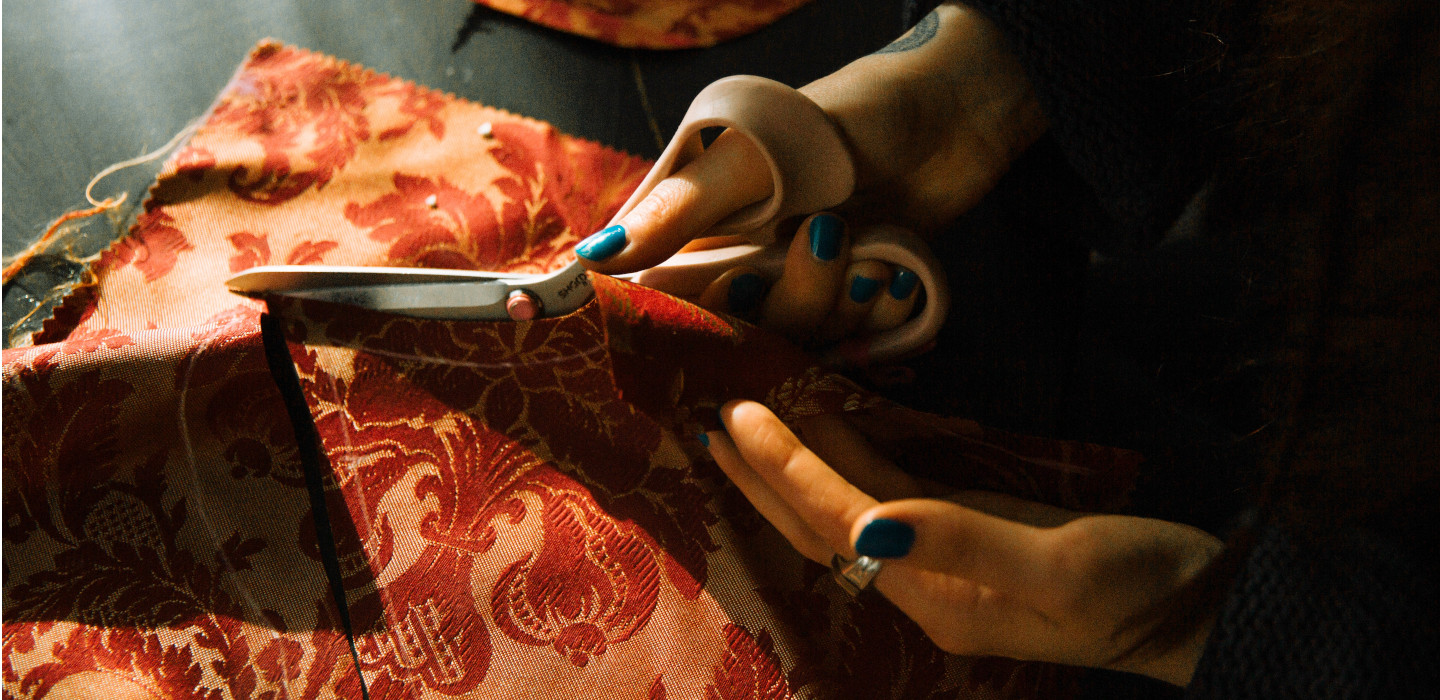Solidarity and flexibility: IFAD-supported artisans produce masks and hairnets to fight coronavirus in Brazil
IFAD Asset Request Portlet
Asset Publisher
Solidarity and flexibility: IFAD-supported artisans produce masks and hairnets to fight coronavirus in Brazil
Estimated reading time: 3 minutes
The rapid spread of COVID-19 across the world has already had profound effects on our society – and on our global economy. The International Labour Organisation has already estimated, for example, that as many as 25 million jobs could be lost worldwide – and the full economic effects have yet to play out. Yet, despite everything, stories of solidarity are already beginning to grow from the cracks of this global picture.
It began in Ipiranga, a rural town of 10,000 in the state of Piauí, in northeastern Brazil. An organization of artisan women, facing a slowdown in their work due to the economic effects of the pandemic and hearing of the shortage of personal protective equipment (PPE) in the area, stopped their normal production and began to make masks, hairnets and other PPE components for local health care workers.
Their organization – ASSARIPI, or the Association of Artisans from the Municipality of Ipiranga-Piauí – was already a success story. Thanks to the support of Viva o Semiárido (PVSA), a project jointly funded by IFAD and the State of Piauí’s Secretariat of Family Agriculture, they had become one of the most well-known, well-respected handicraft factories in the region.
Under normal circumstances, they use the stems and fibers of buriti, a native plant especially adapted to the local semi-arid climate, to produce furniture, baskets, decorative pieces, clothes and bags. But recently, after hearing of the great demand for PPE and the lack of availability in local shops, they decided to help fill that gap.
“The [PPE] suppliers were no longer able to cope with the demand and we decided to help,” explains Lídia Ribeiro de Andrade, President of ASSARIPI. “Initially, we made just a few pieces and donated them to people from the countryside, mainly elderly people in need. After a few days we were already producing protective equipment for the local health center and, soon after, for the regional hospital in the nearby municipality of Picos.”
| © Luiz Carlos Vieira - Members of ASSARIPI at work making masks. |
“They have already manufactured masks, hairnets and gowns for the health departments of the whole Sambito Valley region,” says Francisco das Chagas Ribeiro, coordinator of the PVSA project. And ASSARIPI shows no signs of stopping. As Francisco explains, they have plans to scale up their operations and are currently adapting their machinery to produce 500 pieces of PPE a day, for distribution throughout the Sambito Valley region via the PVSA commercial network.
Iolita Ramos, one of the co-founders of ASSARIPI, has three children and five grandchildren. Her household depends on her income from ASSARIPI to get by. Yet in the middle of a situation like the coronavirus pandemic, she is focused not on her own financial situation, but on her ability to show some solidarity in the face of it.
“We are now waking up to this coronavirus reality, and we all have to make our contribution to overcome it,” she says. “We are working on producing the masks but we would like to help more.”
In fact, demand has been so high that, despite these measures, ASSARIPI does not have the capacity to handle all the requests they are receiving. “Even hospitals and health centres from Piauí’s capital, Teresina, and other states have gotten in touch with us, but we cannot meet all demands,” Lídia admits.
That’s when the network began to grow.
Hearing of the increased demand, the State of Piauí’s Secretariat of Family Agriculture – IFAD’s local partner in the PVSA project – stepped in again, willing to do their part as well in the fight against coronavirus.
The Secretariat reached out to two other small rural producers’ associations in the neighbouring municipalities of Nossa Senhora de Nazaré and Batalha to scale up the effort. These two associations, which normally participate in a different state-funded program, have committed to join the effort to produce PPE components and to distribute them through the PVSA network.
Each of the two associations should be able to produce 800 pieces a week, which, combined with the 500 pieces produced every day by ASSARIPI, will add up to a production of about 5,000 PPE components every seven days. That’s not at all a small contribution to the fight against COVID-19, especially in an isolated area like the Sambito Valley region.
Despite being confronted with an unprecedented threat, these three organizations have demonstrated remarkable flexibility, quickly coming up with an ad hoc solution instead of continuing with business as usual. Yet these efforts would not enjoy nearly as much success without the solidarity they have demonstrated – and which, as UN Secretary-General António Guterres reminds us, is crucial to overcoming the COVID-19 pandemic.
Every contribution to fight this pandemic counts. As Lídia, Iolita and their colleagues remind us, opportunities to show compassion and help each other through these uncertain times are often right at our fingertips.
Learn more about IFAD’s work in Brazil.
Publication date: 08 April 2020